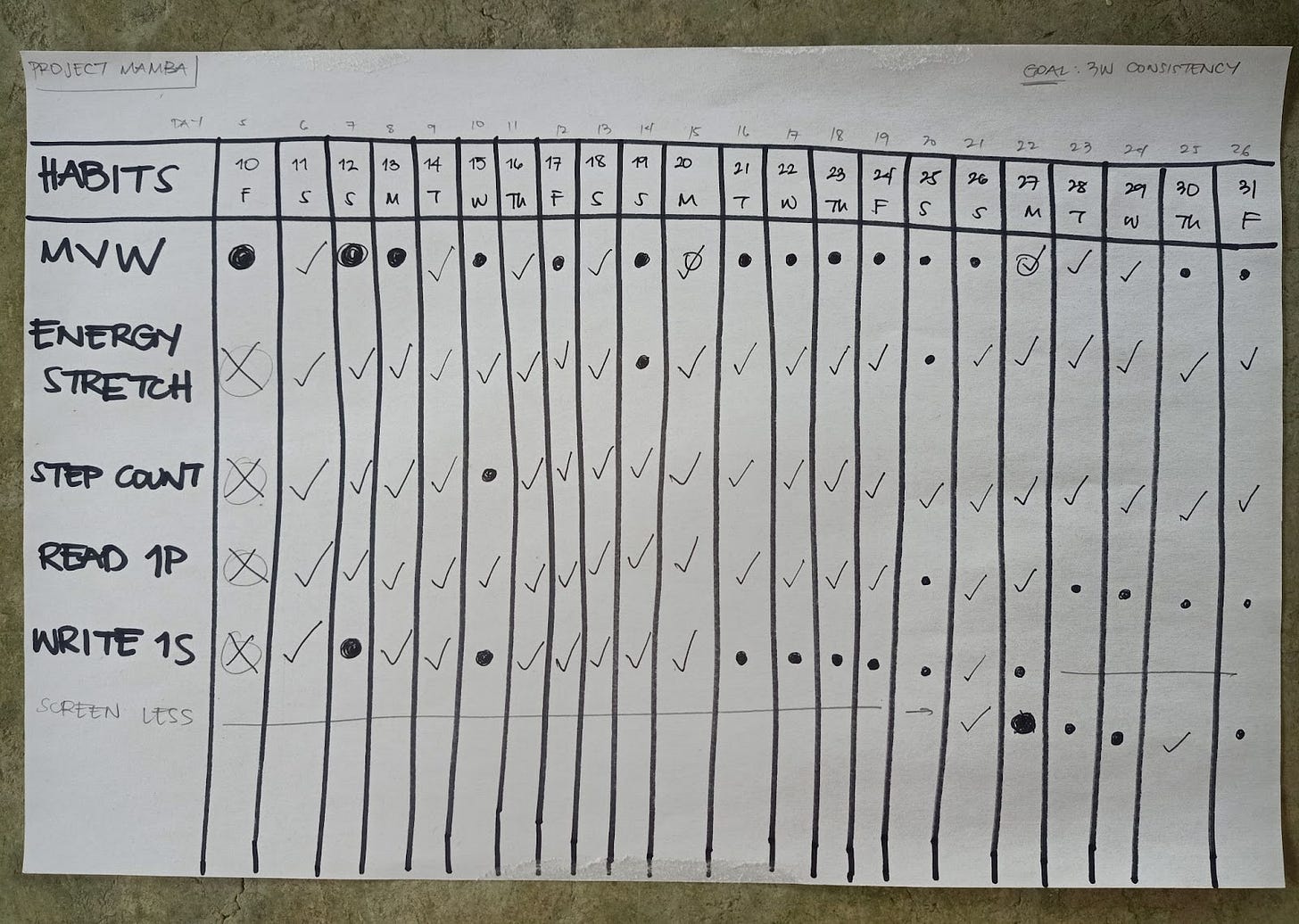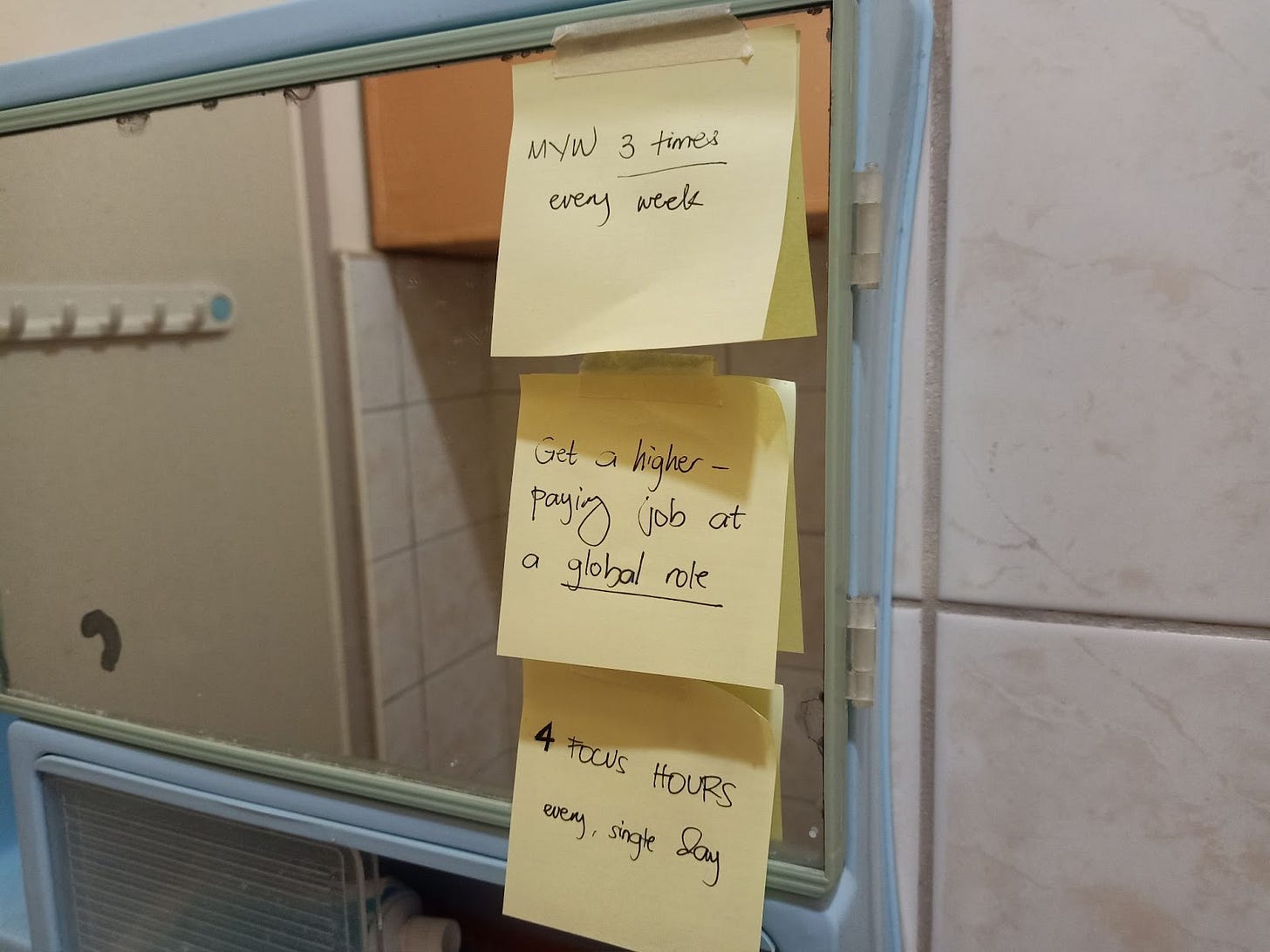This is the first essay I’ve written in 6 months, and I’ve never been this patient, persistent, or committed to a piece before. I did my best to honestly capture what I learned about self-love these past few months. It’s been a long and difficult process—the first draft looked nothing like the final version—but I know the effort always feels worthwhile after publishing.
My hands are sweating as I write this note, nervous about how it will be received once it’s sent out. But then again, just being able to share this essay and learning everything I learned while writing it is already its own reward.
So thank you for considering to read my work. May you find something you can carry with you as you move forward.
“Don’t you see the plants, the birds, the ants and spiders and bees going about their individual tasks, putting the world in order, as best they can? And you’re not willing to do your job as a human being? Why aren’t you running to do what your nature demands?
You don’t love yourself enough. Or you’d love your nature too, and what it demands of you.”
—Marcus Aurelius
The problem with self-care is that it’s often portrayed as doing what feels good. As if the best way to take care of yourself is by lighting scented candles, going on vacation, or ending work early to watch a feel-good movie.
I’m not saying it’s wrong to relax or do what you enjoy. But I’ve come to realize that real self-care isn’t about feeling better. It’s about becoming better. And that takes discipline.
Discipline to consistently do what you know you need to do. Because that, in itself, is a form of self-love. Love for the person you are becoming, and love for the person you are meant to be.
Loving yourself, then, might look different from how our culture often portrays it. It’s not always fun, and it’s not always easy.
Loving yourself might mean getting up early even when you don’t feel like it. It might mean pushing through a workout even when you’re already tired. It might mean putting in extra hours on a side project after an exhausting day at work.
Loving yourself is choosing the hard thing today so that tomorrow will be easier.
Marcus Aurelius makes a great point in the quote above: You can only love yourself when you learn to love your nature and what it demands of you. And for us human beings, that means fulfilling our duties to others and to ourselves.
But what does fulfilling your duty have to do with loving yourself?
It is the foundation of self-love. Because that’s how self-respect is formed.
Respect always comes before love. You can never truly love someone if you don’t respect them first. Before you can say you love your parents, you must know deep down that you respect them. The same goes for your friends, your siblings, your significant other. And the same goes for yourself.
Self-respect is earned by doing hard things consistently. There’s a reason we admire Olympic medalists, bestselling authors, and Nobel prize winners. They set out to do what most people wouldn't, and they worked at it harder than most ever will. They made the difficult choices, and in return, were rewarded with respect, both from others and from themselves.
In contrast, it’s difficult to respect someone who always takes the easy way out. I didn’t realize how little I respected myself until I admitted all the ways I had chosen the easy path in life.
I’d stay warm under my blankets instead of starting my day. I’d answer messages instead of working on my projects. I’d watch YouTube videos instead of completing a tough workout.
I thought avoiding the struggle was my way of taking care of myself, but I was really just protecting myself from the pain. Like a father who won’t let his son experience the world because he’s afraid he might get hurt. But we all know the lesson that Nemo’s dad had to learn. I just didn’t realize I had to learn it too—long before becoming a parent.
So how do you actually develop self-respect? By consistently keeping your promises. I recently read a beautiful essay by
that captures this perfectly:“[Self-respect] requires that we honour our commitments and uphold our moral principles practically. It requires that we repeatedly do what we say we will do.”
She further explains:
“You develop your self-respect when you say you’ll wash the dishes, start to wash the dishes, and observe yourself finish washing the dishes. You develop your self-respect when you say you’ll do the assignment, write the assignment, and observe yourself submit the assignment. You develop your self-respect when you say you’ll spend more time with the kids, set out the time to play with the kids, and observe yourself play with the kids.
This is why self-respect is not something that can be granted to us by others—it is built through action, and a deep and personal accountability to oneself.”
Respect comes before love, and self-respect is earned by honoring your commitments. Maybe self-love isn’t just about being kind to yourself. Maybe it begins simply by keeping the promises you make to yourself.
How I’m Taking Action
The approach I'm currently taking is rather simple, and is connected closely to the final sentence of my essay: Be consistent in keeping the promises you make to yourself.
Here’s an example. This year, I set a goal to become the strongest I’ve ever been. This requires showing up three or four times a week for a real workout. Not just yoga or stretching, which I’ve been more comfortable with. But an actual full-body workout.
I knew I didn’t need to start out strong, as ironic as it may sound. The promise I made to myself was to keep showing up first. To develop the habit and start seeing myself as someone who regularly works out. Because before I can be strong, I first need to be someone who makes the effort to become strong.
Knowing myself, though, I expected that I’d struggle to follow through when life got in the way. There might be a big project at work or maybe I’m just not in the mood to sweat it out. This is exactly what happened last year when I tried the same thing. And it happened again last month.

I tried all kinds of hacks and techniques, from designing my environment to planning an ideal weekly routine. None of it seemed to work for me. What did help, however, was giving myself more accountability. And I’ve been doing it in two ways.
1/ The accountability mirror
I got this idea from reading Can’t Hurt Me by David Goggins. Basically, you place sticky notes on your mirror to remind yourself of the goals and promises you’ve made.
At first, I didn’t believe in it. It seemed silly, and I wondered what my mom would think if she saw my bathroom mirror covered in post-its. But I eventually gave it a shot and tried it out for a week.
And it worked.
Seeing those reminders first thing in the morning sets the tone for my entire day. Having a small nudge helps clear my mind of distractions and keeps me focused.
Looking at my goals, and then at myself, also reinforces the commitments I made. It’s hard to break a promise to yourself when you can see where you are now and imagine where you could be if you just keep going.
2/ Progress Trackers
I’m a big believer in data tracking. And no, it doesn’t have to be high-tech or complicated. I’ve been using physical trackers since 2021, and nothing has made it easier for me to monitor my progress.
Now that I got more comfortable with tracking, I started doing Focus Logs on a Google Sheet. This idea was inspired by Ali Abdaal, and you can watch him talk about it here.
Basically, whenever you work on an important task, you log it in a sheet and record how long you worked on it. This doesn’t include meetings or replying to email or any sort of admin work.
This works well for me because it reveals how much time I’m actually dedicating to meaningful work. When I first tried it last month, I was surprised that I was logging less than 4 hours a day despite feeling like I was working from morning until night.
Seeing my metrics keeps me accountable and helps me stay grounded in reality. I can’t make excuses when the numbers are right in front of me. The only thing I could do is adjust my actions to get better results.

🌷 what i’ve been up to:
I got my PR in focus hours this week (36.2 hrs), but I think I overworked myself… it’s about time to dial things down a bit.
Finished reading Can’t Hurt Me by David Goggins (gave it a 4/5 review). Skipped the final two chapters because it started feeling less relevant. Sometimes, you just need to recognize when to give up on a book.
Started reading Shoe Dog again. Phil Knight is an amazing storyteller.
I could never stay consistent with workouts last year, but now I’m on a 3-week streak!
🌱 quote i’m thinking about:
Pixar’s number one rule of storytelling:
“You admire a character for trying more than their successes.”










needed to read this.
Welcome back, Linart! As expected, I always learn new things from you and your writeups. I also hope to do better in my commitments at work and my personal life. Padayon! 💕